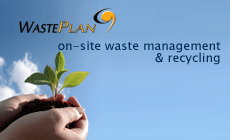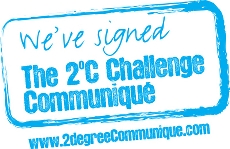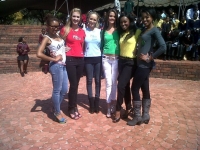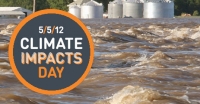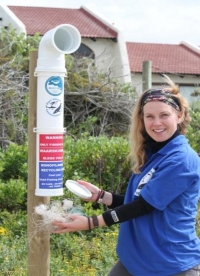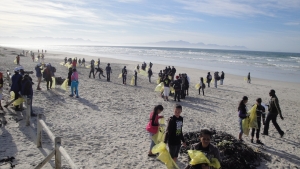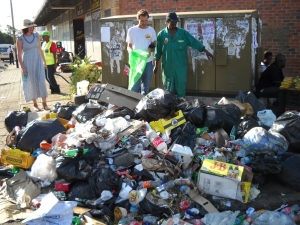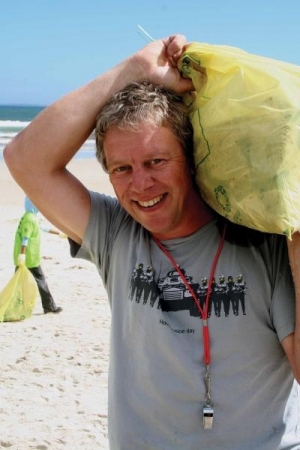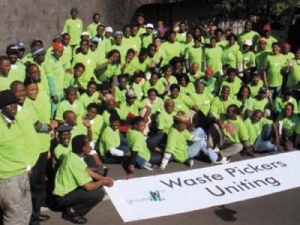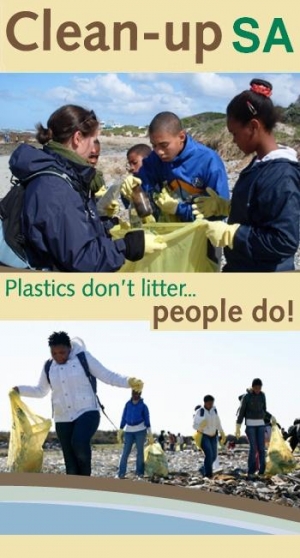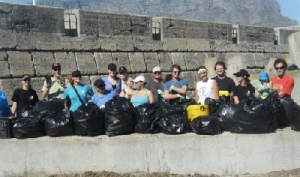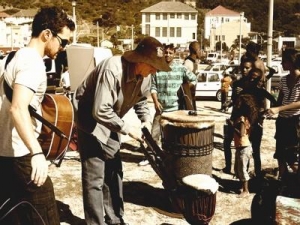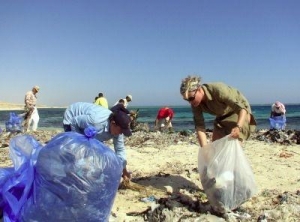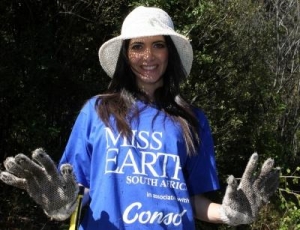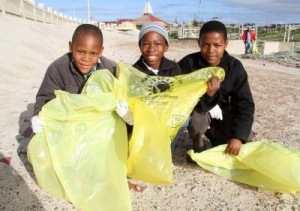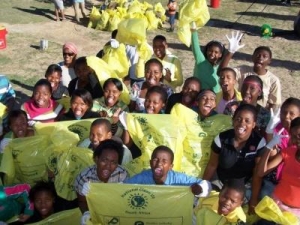Earth Day took place this past Sunday with community action and green beauties taking a stand to save our open spaces as citizens of Mother Earth.
Across the planet now we see ever more flood, ever more drought, ever more storms. People are dying, communities are being wrecked — the impacts we’re already witnessing from climate change are unlike anything we have seen before.
When having a relaxing day at the beach, it's always saddening to see dead birds and animals trapped in old fishing line. Luckily, an innovative solution is now being launched to rid our oceans of this problem.
The audited results of this year’s International Coastal Clean-Up Day, which took place on 17 September 2011, show that plastic litter continues to be a problem on South Africa’s beaches.
'Many hands make light work'. This idiom was particularly true for the Climate Train on Monday, 7 November, when the entire team came together for a collaborative AMbush (guerrilla gardening) on the corner of Market and George Street, Krugersdorp.
With Summer nearing, Capetonians can once again look forward to lounging on the iconic beaches that stretch around the peninsula.
'Waste pickers are not fighting for the right to be on landfill sites, they are fighting to be part of the waste management system,' said Mr Simon Mbata, representative of the South African Waste Pickers Association (SAWPA) at a workshop debate hosted by the Institute of Waste Management of Southern Africa (IWMSA) in Midrand last week.
Spring is in the air and South Africans are starting to emerge from their homes after a long and cold winter.
In South Africa there is much to do to curtail littering, minimise waste and educate communities on how to live and practice the 3 R's - reducing, re-using and recycling of waste.
I've been reading about the Great Pacific Garbage Patch, an area larger than the US, where abandoned fishing nets, plastic bath toys, computers and plastic pellets wash around endlessly, and wondered if I would find my odd socks and lost pens there.
Each year, three times as much rubbish is dumped into the world's oceans as the weight of fish caught. In 1996 120 million tons of fish were caught, meaning around 400 million tons of rubbish is dumped in the oceans annually.
Once a year the Surfrider Foundation Europe launches clean-up weekends at lakes, rivers and beaches to raise awareness about pollution and littering.
Plastic bottle caps are the most collected items at beach clean-ups throughout the year, with increased food wrappers, plastic cutlery and drinking straws the other big monsters we need to fight.
Milnerton beach is where you want to be with your kids and others from 11 Western Cape schools on the world's largest single-day volunteer effort to eradicate litter and debris from beaches, inland waterways and oceans.
South Africans of all ages and backgrounds are encouraged to do their share to keep our country beautiful during Clean Up South Africa week which will take place from the 13th to the 18th of September 2010.
This year's World Environment Day was one of the biggest, most widely celebrated, global days for positive, environmental action.
Over 200 school children from Khayalitshe collected nearly 100 bags of rubbish to transform stretches of Monwabisi Beach this weekend as part of the Our School Cares Programme. This is a Peninsula Beverages environmental initiative, in partnership with the Environmental Action Group. It is the third of eight beach and river clean ups for 2010.
This year's OUR SCHOOL CARES environmental competition started off with a good show of enthusiastic learners eager to clean the Strand beach on Earth Day. No less than 9 schools, 18 teachers and 310 learners, plus 60 dedicated Peninsula Beverages (the sponsors) staff and their children, pitched in and systematically stripped the beach of 400 bags of rubbish in one hour!
In 2007 a group of concerned Hout Bay residents created the 3Rs (Reduce, Reuse, Recycle). This environmental action group focuses on creating awareness of how and why we should responsibly manage our waste.



